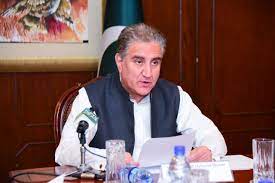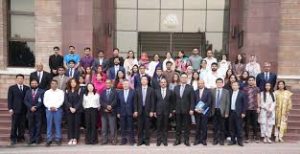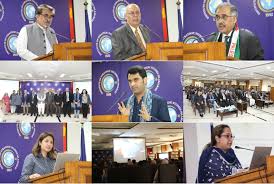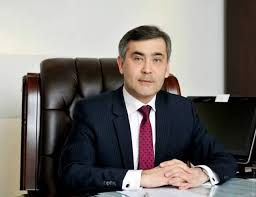Qureshi for unity, multilateral cooperation for post-pandemic economic recovery

Islamabad: Foreign Minister Shah Mahmood Qureshi Wednesday called for unity, solidarity and multilateral cooperation among countries for post-pandemic economic recovery, besides finances for developing countries to enable them achieve Sustainable Development Goals (SDGs) by 2030.
“Our fruitful cooperation in combating COVID-19 for timely economic rebound would require sharing experiences and best practices for diagnosis and treatment of COVID-19; enhancing the availability, accessibility and affordability of vaccines through joint research and production and improving developing countries’ access to vaccines,” the foreign minister said addressing the Asia and Pacific High Level Video Conference on Belt and Road Cooperation.
He said the timely economic recovery would also require preferential financing from multilateral development institutions for developing countries which could only be done through robust multilateral policy measures and broad-based cooperation.
Additionally, he said there was a need to mobilize the finance needed by developing countries to recover from the COVID-19 induced recession and to restore them on the path to achieve the SDGs by 2030.
Developing countries should also be able to borrow from the markets at the prevailing low interest rates available to developed countries, he added.
Calling the high level conference “a timely initiative”, the foreign minister appreciated China for hosting the event and said since the outbreak of COVID-19, post pandemic economic recovery and green sustainable development remained the priorities of Belt and Road partner countries.
He said the countries of Asia and Pacific were moving ever closer to the center-stage of global affairs, while “we continue to face common and mounting challenges such as climate change, COVID-19 induced inequalities, and non-traditional threats, to name just a few.”
He said the apart from the medical catastrophe, the COVID-19 also has a far-reaching political, social, and economic impact on the globe.
“The pandemic has led to economic slowdown, bankruptcies, financial fissures, job losses and disruption in global supply chains. It has indeed tested the resilience of the existing global economic system and restructured the ways in which the economic and social problems must be conceived and addressed,” Qureshi remarked.
He told the participants that in order to fights the pandemic effectively, the government of Pakistan followed a ‘smart lockdowns’ policy and adopted the three–pronged strategy focused on ‘Saving Lives, Securing Livelihoods, and Stimulating the Economy’.
“To target the vulnerable segments of the population, the government disbursed Rs. 203 billion to 15 million families through its ‘Ehsas Emergency Cash Program’. We have launched a vaccination drive that will cover 70 million people by December 2021. In this regard, 12 million vaccine doses have been administered to over 9.5 million citizens,” Foreign Minister Qureshi said.
He said earlier this month, Pakistan began production of Chinese made vaccine, underscoring the resilience of our industrial supply chains and China’s growing role in fostering international cooperation in healthcare.
He said Pakistan’s efforts to contain and reverse the worst effects of COVID-19 had been enormously helped by China for which the government and people of Pakistan profoundly grateful.
Qureshi said the challenges posed by the COVID-19 pandemic were a great opportunity not only to rebuild better, but also greener.





